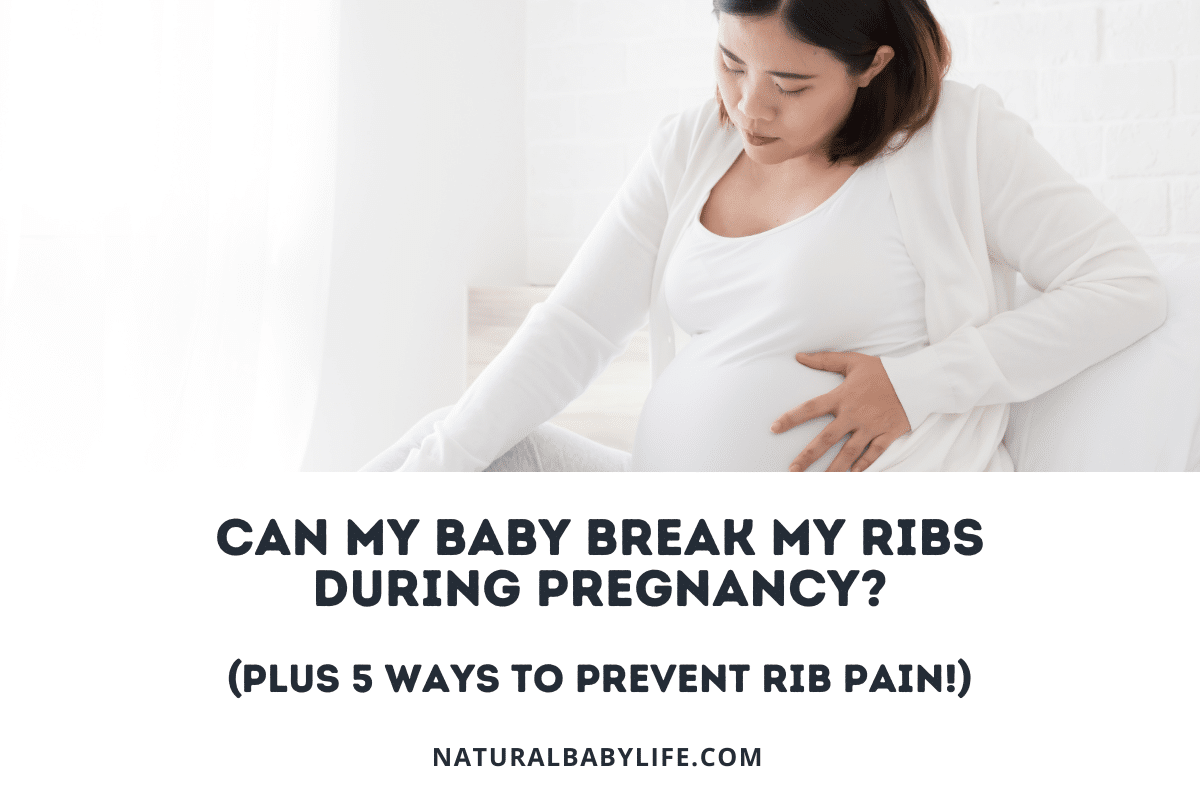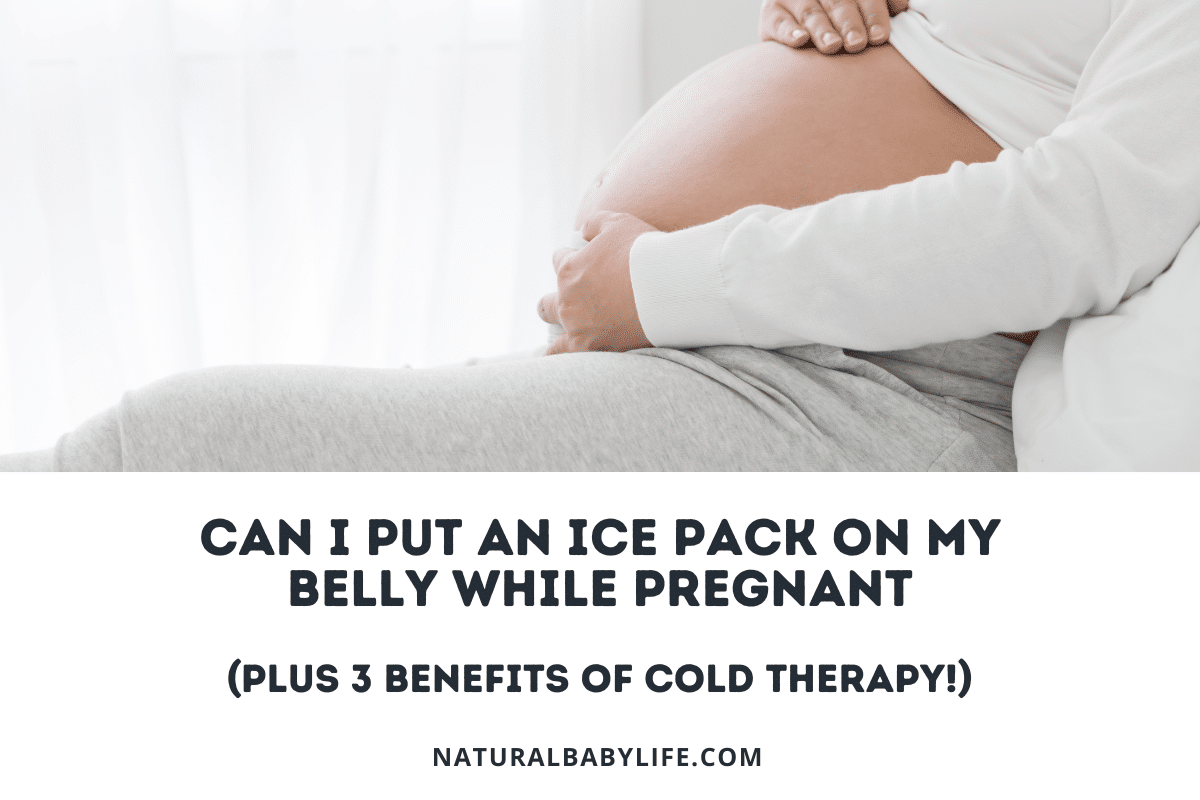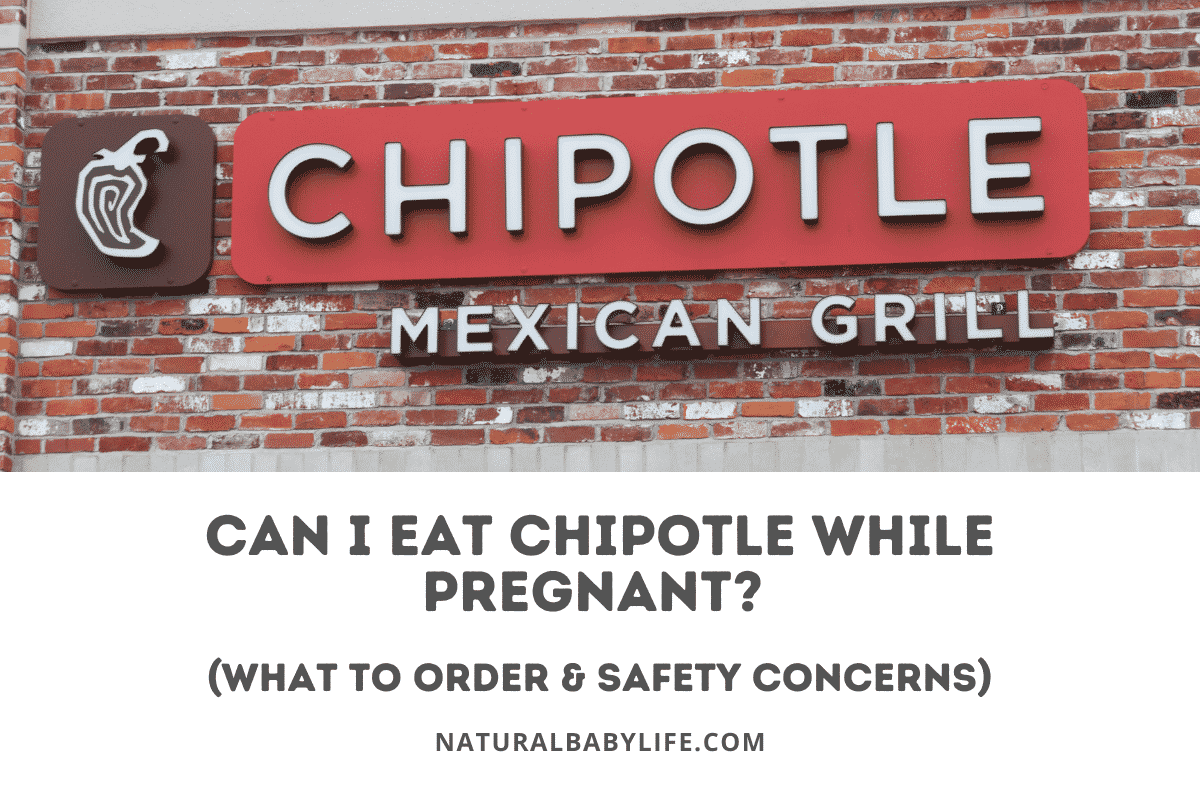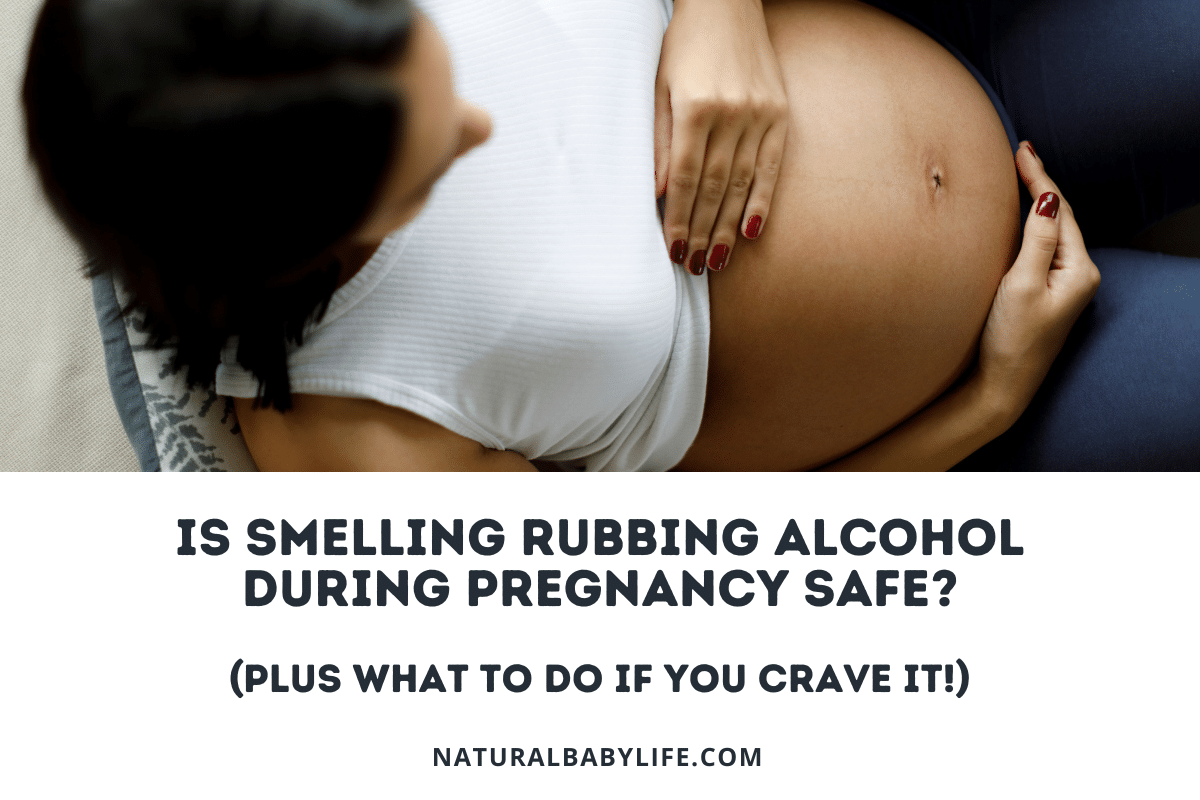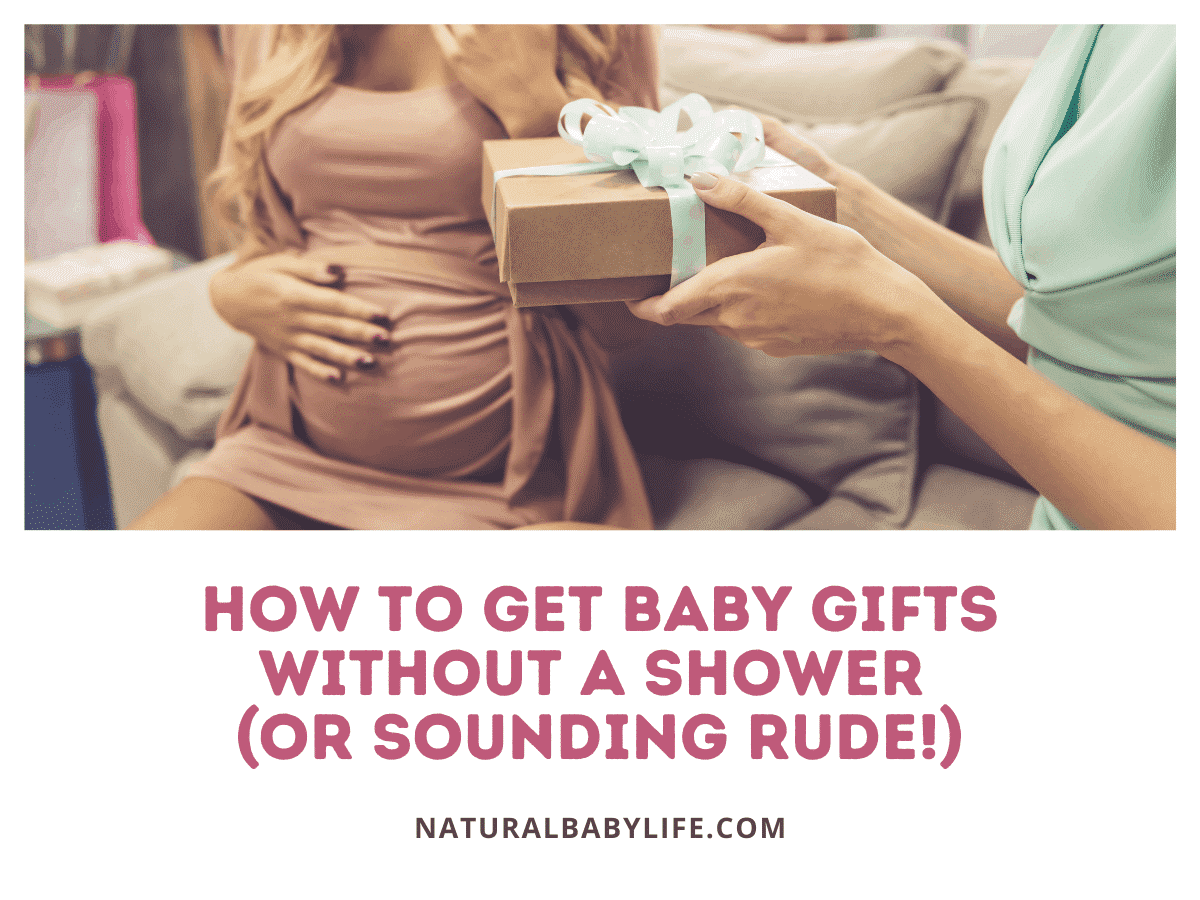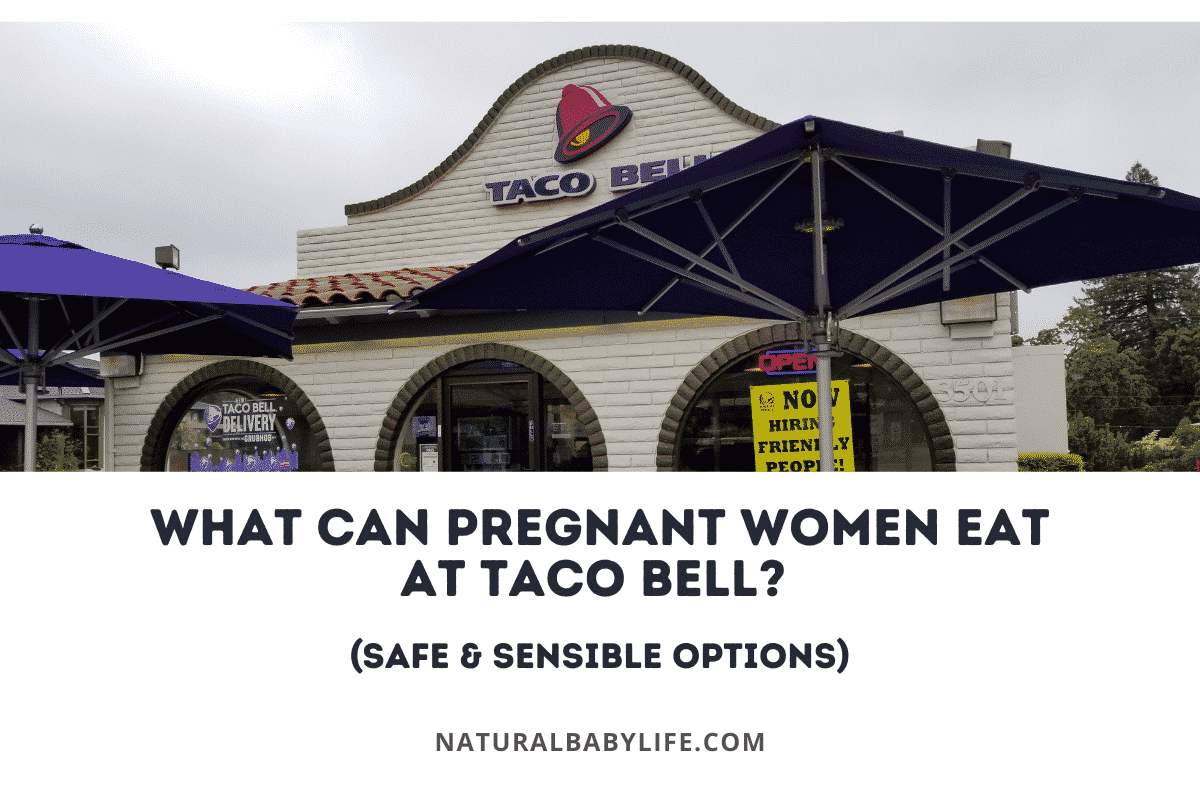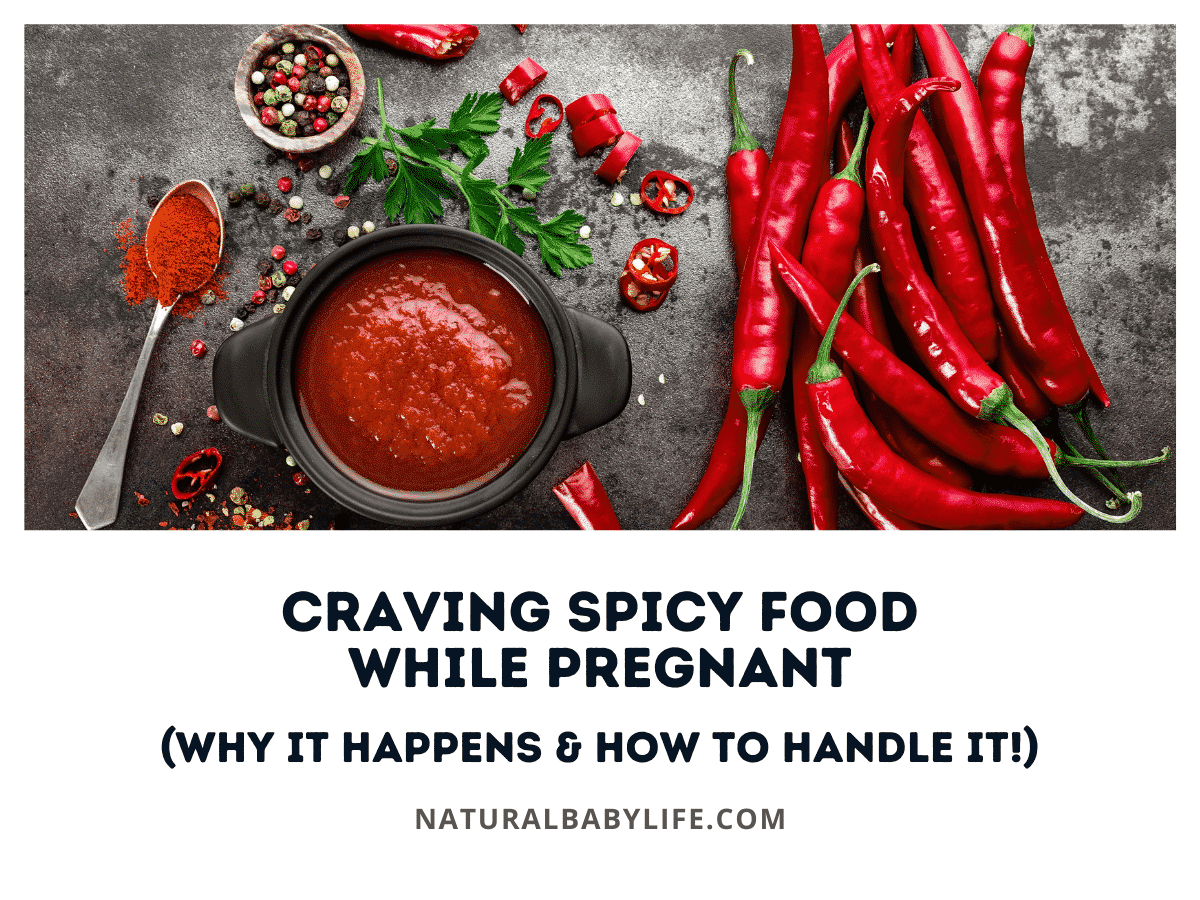A sharp, stabbing pain in your ribs is miserable at any time, but especially if you’re already dealing with the aches and pains of pregnancy. You knew that your growing little one would change your body, yes, but is it possible that the pain in your chest is a broken rib? If you’re experiencing rib pain during pregnancy, you might wonder can my baby break my ribs during pregnancy?
Despite their small size, your baby can bruise or even fracture your ribs from the womb during pregnancy. Luckily, it’s very rare for your ribs to actually break due to pregnancy, though bruised ribs and general rib pain can be pretty common pregnancy symptoms. It’s especially common in the third trimester because of the ways your body is changing.
If you’re pregnant and think your baby might have fractured one of your ribs, keep reading to learn how to tell if your rib is really broken, and what you might do to help ease the pain.
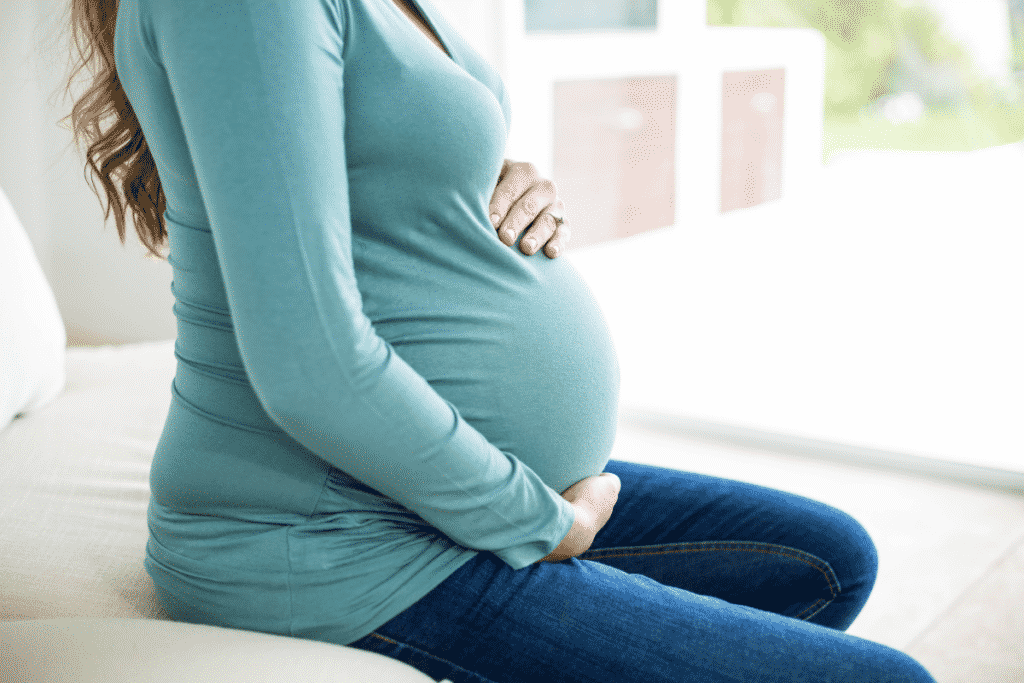
Table of Contents
Can my baby break my ribs during pregnancy?
Even though you may conjure up a mental image of your unborn child karate chopping you and breaking your ribs based on the force of impact, that’s not quite how it works.
Most rib damage during pregnancy is not caused by the baby’s motion. Since they’re pretty insulated by amniotic fluid and your uterus, your baby probably won’t be able to exert enough force on your ribs to break them (though it may feel that way if your little one is a mover!) However, the accompanying physiological changes during pregnancy can sometimes lead to a rib fracture.
Even though your baby isn’t likely to kick your ribs in, women have still broken or fractured their ribs while pregnant. During pregnancy, you’re more vulnerable to stress fractures or even a full break in your ribs due to some of the physiological changes brought on by pregnancy.
Changing hormones also cause your joints to loosen and the anatomy of your abdomen to shift as your body accommodates your growing baby. The loosening muscles and enlarging uterus provide less support to your rib cage, which can make it easier for a rib to become dislocated or fractured.
How can I tell if my rib is broken during pregnancy?
If you’re naturally petite, have poor nutrition, or experience a severe coughing fit while pregnant, you may end up with a stress fracture in one of your ribs.
But how can you tell if the pain in your chest is caused by a broken rib or just some nasty bruising?
Only an x-ray or doctor’s examination can definitively tell whether your rib is bruised or broken. The symptoms of bruised ribs and fractured ribs are remarkably similar. These symptoms might include:
- Pain and tenderness of the area
- Pain while breathing
- Possible bruising
Additionally, the treatment is usually the same and includes a combination of pain medication to help with swelling and lots of rest. So, even though you might want to know if your rib really is broken, it usually doesn’t matter much when it comes to treating it.
Rib flaring during pregnancy
Rib flaring is a natural (although very uncomfortable!) part of pregnancy.
During the third trimester, your growing uterus expands upward, right underneath your rib cage. To accommodate the growth, your ribs ‘flare’ out, making space for your baby. Some women may experience no evidence of rib flaring, especially if their baby is small or if the woman is larger. Other women might experience substantial and painful rib flaring, especially if they are petite or their baby is particularly large.
While rib flaring doesn’t often harm the bones of the ribs, it causes pain by stretching and pulling the soft tissue around the lower ribs. The stress on these soft tissues can cause aching pain in the lower ribs, tenderness, and in severe cases, pain while sneezing, coughing, or even breathing.
Rib flaring is a common symptom of pregnancy, although the severity can vary. If you do experience rib pain during pregnancy, it’s more likely to be from rib flaring than from a broken rib.
How to know if my baby broke my rib
One of the easiest ways to tell if your baby broke your rib will be a change in the type of pain you’re feeling. While it’s common for your lower ribs to be a bit sore during the third trimester of pregnancy, a broken rib will cause more severe, sharp, and localized pain.
Broken ribs often cause breathing or coughing to be extremely painful, and you may even see bruising around one area of your rib if it is fractured. A fracture can also trigger a sudden pain if you bend or twist your abdomen, but the only way to know for sure if your rib is truly broken is to get an x-ray or CT scan.
Doctors may be hesitant to recommend these procedures during pregnancy, as the extra radiation can be harmful to your growing baby. Your doctor should be able to get a good idea of whether your rib is broken just through a physical exam, but if they’re worried it’s a serious break, they may recommend an x-ray to make sure everything is okay.
How to know if my baby bruised my rib
Bruised ribs have symptoms very similar to broken ribs, with only a few minor differences.
In the case of a bruised rib, your pain will likely be less severe than in the case of a break (though more severe than rib pain caused by pregnancy and rib flaring). Bruised ribs often cause visible bruising on the skin, and make the injured area tender when touched.
Coughing and sneezing may be painful with a bruised rib, but regular breathing shouldn’t hurt. If it does, you’re more likely to have a fractured rib instead.
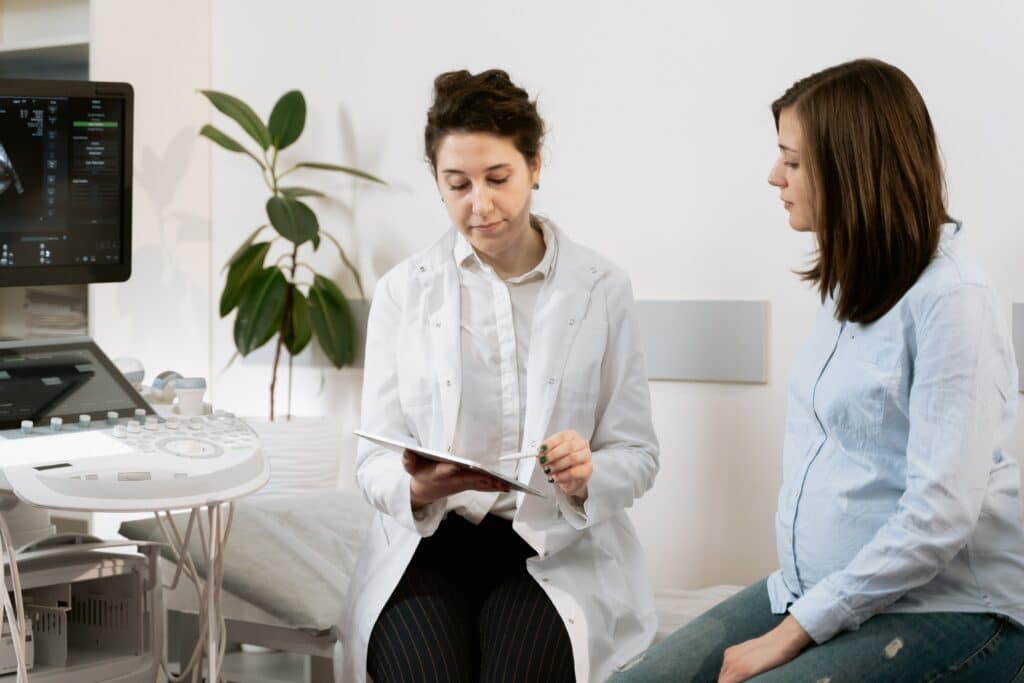
When to call the doctor
You should let your doctor know immediately if you think you’ve broken a rib, just so that they can check to make sure it hasn’t impacted your baby in any negative way. The worst part about broken ribs is that the only real treatment for them is time.
If you’re feeling extreme chest pain, your ribs look uneven or caved in, or you’re heavily bleeding, you should seek medical care right away.
If immediate care isn’t necessary, mention the pain to your doctor or midwife at your next appointment. While a doctor will be able to give you safe medication or advice to help you manage the pain in your ribs, there’s nothing to really do but rest and wait for your injury to heal.
If you’re in your third trimester and have a broken rib, there’s a good chance that the rib may not fully heal until after you’ve given birth. The stress of pushing during birth may also aggravate the injury.
Rib pain during pregnancy
Most of the rib pain you feel during pregnancy is caused by the changes taking place in your body.
Hormonal changes cause your ligaments to relax and stretch, which can irritate the tissue surrounding your expanding ribs. Your breasts also grow during pregnancy, which can shift your posture and put added pressure on your ribs.
Speaking of pressure, your growing baby is shifting and moving–kicking at your ribs and making them feel sore. Last but not least, the pressure your baby is putting on your stomach can cause heartburn and pain in the upper half of your ribcage.
If the pain you are feeling is sharp, located in a particular area, or is associated with bruising on your ribs, you may have a bruised or broken rib rather than regular rib pain caused by pregnancy.
Rib pain during first trimester
Rib pain is very unlikely during the first trimester of pregnancy, although it can happen.
The most likely culprit this early in the game is your growing breasts–their bigger size and extra weight can shift your posture, making your back and ribs sore. The hormone relaxin also increases during the first trimester, loosening your joints which in turn can cause your ribs to ache.
Rib pain during second trimester
The start of your second trimester will likely be rib-pain-free, but towards the end of the trimester, your ribs may begin to feel the pressure of your growing baby.
Your uterus is expanding upward, crowding your lower ribs. To make matters worse, many babies turn upside-down in the second trimester, making your lower ribs a prime target for your little one’s kicks.
You may also start to experience round ligament pain during the second trimester. As your uterus grows, it begins to put pressure on the ligaments connecting your uterus and groin, which can cause sharp pain around the ribs, back, or pelvis.
Rib pain during third trimester
The third trimester of pregnancy is where rib pain can become nearly constant.
Your baby is pushing upward beneath your ribs, causing them to flare out, your heartburn is out of control, the hormone relaxin is increasing in preparation for birth, and, of course, your stomach is massive and completely messing up your posture.
Women are also more likely to develop a UTI (urinary tract infection) during pregnancy, although they’re more common during the first and second trimesters. UTI’s cause kidney pain, but the pain often feels like sore ribs due to the position of the kidneys. If you have fever or chills along with rib pain or are feeling a burning sensation during urination, you should see a doctor to get tested for a UTI.
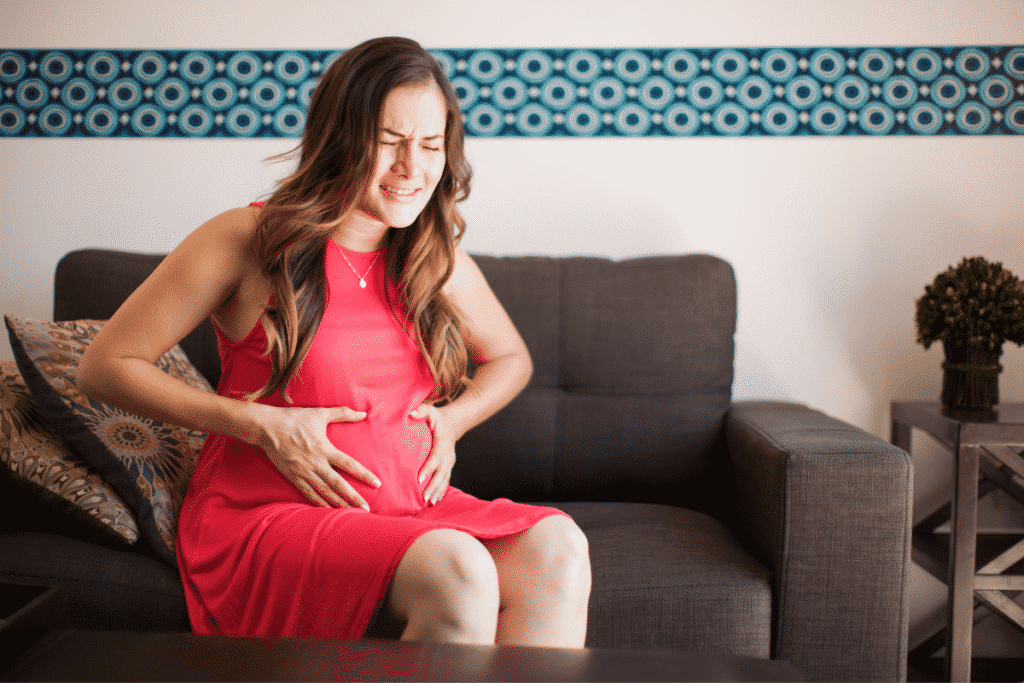
Preventing rib pain during pregnancy
If you are already feeling the pains of pregnancy, there are some helpful ways to relieve that pain, but the best thing you can do is be proactive and keep it from happening altogether.
If you’re looking to avoid rib pain during pregnancy:
- Check your posture – Although it can be annoying, sitting up straight can help minimize the pressure put on your ribs, reducing pain. Good posture can also help reduce pain in your neck and upper back. If you are still experiencing back pain, acupuncture can help.
- Try yoga – Pregnancy yoga can help keep you flexible and strong, even with all the changes going on in your body.
- Breathe deeply – Not only can breathing exercises help you relax, but they may also help strengthen the core muscles that keep your ribs in place.
- Use the right bra – Supportive nursing or pregnancy bras can help distribute the weight of your larger breasts. Try to avoid underwire bras since they can add unwanted pressure to your sensitive chest.
- Pile on the pillows – Tucking a pillow between your knees at night or sleeping with a specially designed pregnancy pillow can help support your growing baby bump and keep your body in proper alignment.
While there are many uncomfortable sensations you may experience during pregnancy, there are ways to prevent rib pain. Some pregnancy symptoms are unavoidable, but things like acupuncture or stretching can prevent a lot of the pain you might experience.
Why does it feel like my baby is in my ribs
If it feels like your baby is literally under your ribs, it’s probably because, well, your baby is!
In the third trimester, the uterus can actually expand right up underneath the rib cage. That means your shifting, squirming baby might very well be pressing up against the backside of your ribs. While it can be painful, it’s also not uncommon to feel your little one kicking at your ribs or tossing and turning against them.
If you’re in the beginning of your pregnancy, it might not be your baby you’re feeling against your ribs. Heartburn can cause intense chest pressure–so much pressure, in fact, that it might feel like your little one is digging into your ribs.
How do I get baby out of my ribs?
Your baby already has a mind of their own: your little one is camped out right by your ribs, and not moving anywhere.
If you’re experiencing pain or pressure because your baby is pressing on your ribs, try these ways to get your baby out of your ribs:
- Walking – Walking can relax your pelvic and hip muscles, which may make some extra room for your little one to shift a bit lower.
- Pelvic tilts – This one feels a bit like yoga–get on your hands and knees, and relax your lower back while gently tilting your pelvis forward. Repeat.
- Use a birthing ball – Rocking on a birthing ball can help shift your baby lower. You can also try squatting against the birthing ball.
- Exercise – Although there’s no concrete evidence to support this idea, some women have claimed that light jumping jacks may help encourage your little one to shift position.
- Wait – At the end of your third trimester, your baby will naturally drop lower into the pelvis in preparation for birth.
As uncomfortable as it may be, if your baby is pressing on your ribs, you’re likely towards the end of your pregnancy. Before you know it, your little one will be here and the pain or pressure in your ribs will be gone.
Frequently Asked Questions (FAQs)
Can a baby’s kick break a rib?
While it may feel like your baby’s kicks are strong enough to break a rib, rib fractures during pregnancy are generally caused by other factors. The changing hormones and loosening of your muscles makes you more susceptible to stress fractures.
Can your ribs break during pregnancy?
You can break a rub during pregnancy, but it’s unlikely to be caused by your baby kicking you. The changes in your body can make you more likely to experience a stress fracture, especially if you’re more petite or have poor nutrition.
Why does it feel like my baby is breaking my ribs?
When your baby starts to get bigger, it can feel like your baby is breaking your ribs due to their strong kicks or the pressure of your growing belly. While this pain can be uncomfortable, it should subside after birth.
Can a baby hurt your ribs?
Especially in the third trimester, you can experience pain and pressure in your ribs. This is often due to the growth of your uterus and your baby. While it is possible for bruising or even a fracture to occur, it’s not commonly caused by your baby.
Conclusion
There are many unpleasant symptoms during pregnancy and one of the common symptoms is rib pain. While it is possible for your rib to become bruised or fractured during pregnancy, it’s not usually because of your baby kicking your ribs.
If you’re experiencing rib pain, your doctor should be able to tell whether your rib is truly fractured, even without an X-ray. In most cases, even with a fracture, the treatment includes pain medication and rest.

